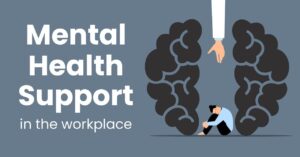Clomipramine
The primary mechanism by which Clomipramine, an antidepressant, increases neurotransmission in the brain is by preventing the reuptake of the neurotransmitter’s serotonin and, to a lesser degree, norepinephrine in central nervous system. Numerous pharmacological effects are shown by Clomipramine, some of which are linked to its adverse consequences. Low levels of certain neurotransmitters in the brain may be the cause of depression and other mental illnesses. Changes in the impacted brain regions due to this anomaly may subsequently cause mental symptoms as anxiety, sadness, or obsessive-compulsive behavior. It’s been suggested, for instance, that serotonin neurotransmission disruption is associated with obsessive-compulsive disorder (OCD), as a result of medications like Clomipramine and selective serotonin reuptake inhibitors (SSRIs) such OCD symptoms may be effectively reduced with (fluoxetine), (paroxetine), or (sertraline).
It’s likely that Clomipramine works its antidepressant and anti-OCD effects via increasing serotonin and norepinephrine levels. Antidepressants often take three to four weeks to reach their maximum effect, which might be the amount of time required for the brain to return to normal operation prior to a reduction in the illness’s symptoms. The delay for a favorable response in OCD patients might reach up to eight weeks.
The Food and Drug Administration (FDA) of the United States exclusively authorized Clomipramine for the treatment of OCD. Treatment for depression, panic disorder, eating disorder (bulimia nervosa), generalized anxiety disorder, and posttraumatic stress disorder are among the unlabeled applications of Clomipramine.
Information about Dosing
Starting dosage recommendations for Clomipramine are 25–50 mg once day, ideally just before bed. Over the first two weeks, the dosage is progressively raised by 25–50 mg, up to 100 mg/day, as tolerated. In larger doses, to reduce adverse effects, Clomipramine may be taken in split doses.
Tricyclic antidepressants may be used before bed to avoid drowsiness throughout the day. The dose may be raised gradually over a few weeks or longer, up to a maximum of 250 mg/day, depending on response and tolerability.
Typical Side Effects
Tricyclic antidepressants (TCAs) often elicit a group of symptoms known as anticholinergic side effects, which include dry mouth and skin, since they suppress cholinergic neurons in the nervous system, constipation, difficulties urinating, and impaired vision. Most people become used to these side effects, but if not, severe anticholinergic effects may cause disorientation and delirium, a mental illness.
Occasionally, the doctor could recommend a different drug to offset the anticholinergic effects of the antidepressant. For instance, a doctor could recommend a 1% pilocarpine eyedrop to treat impaired eyesight and bethanechol, a cholinergic medication used to treat urinary problems (e.g., Urecholine). An over-the-counter stool softener like (docusate) is often beneficial for constipation.
TCAs may cause dizziness in certain people. The medications’ ability to momentarily lower blood pressure may be the cause of dizziness since they prevent the body’s natural reaction to keep blood pressure steady.
when someone gets up from a sitting or standing posture, or vice versa. Orthostatic hypotension is the medical name for this response. Orthostatic hypotension caused by these antidepressants may be more common in elderly people and those on blood pressure drugs.
Gaining weight is another prevalent issue. Most people who use TCAs, including Clomipramine, gain several pounds. The doctor may decide to change the patient’s medication to one of the more recent, weight-neutral antidepressants, such selective serotonin reuptake inhibitors, if the patient’s weight does not stabilize.
In addition, Clomipramine may cause reduced sexual desire in both men and women, as well as impotence and problems ejaculating in males. If this continues to be an issue, the doctor may decide to replace the patient’s prescription with an antidepressant that doesn’t affect sexual function, such bupropion.
Adverse Events and Safety Measures
Some individuals may have severe sleepiness and impaired vision while using Clomipramine. Before doing any potentially dangerous duties, such as operating equipment or driving, patients should make sure that their eyesight, attentiveness, and the medicine has no effect on or coordination. Individuals who have a history of severe reactions to Clomipramine or who have a known allergy should not use Clomipramine.
Clomipramine slows the electrical impulses that pass through cardiac tissues, which may have an impact on cardiac conduction resulting in an arrhythmia, which is a disruption in cardiac rhythm. Seniors and those with a history of arrhythmias or cardiovascular disease are more likely to have this adverse effect. Consequently, patients who are older than 65 and those who have An ECG should be obtained before to therapy and at least once a year for those with a history of heart disease.
- As mentioned before, elderly people and those on blood pressure-lowering drugs may be vulnerable to orthostatic hypotension caused by Clomipramine. In these vulnerable people, the abrupt decrease in blood pressure or sudden increase in blood pressure might result in fainting. The person should get up gently to avoid this, allowing their blood pressure to regulate gradually.
Clomipramine has a slight risk of causing seizures, particularly at higher doses (up to 250 mg/day).
- People who have had seizures in the past or who are at risk for seizures due to brain damage, alcoholism, or other predisposing factors should speak with their doctor. The doctor may need to restrict the daily maximum dose.
Clomipramine during Breastfeeding and Pregnancy: Pregnancy Category C
Due to a lack of clinical experience, Clomipramine ‘s safety in pregnancy has not been studied in women, and it is unknown whether it causes more spontaneous miscarriages or birth abnormalities. TCAs are generally not advised to be used when pregnant, particularly in the first three months. Fetal anticholinergic syndrome is the term for the anticholinergic adverse effects that TCAs may cause. These symptoms can also impact the unborn child.
Use during pregnancy must thus be carefully considered in relation to the medication’s possible harm to the developing baby. Women who are or may become pregnant should talk to their doctor about this. When using Clomipramine no longer, women may relapse into depression or OCD. It can be essential to continue the medicine in these situations or look for an alternate drug or course of therapy.
Clomipramine should not be used by nursing women since minute quantities may enter the breast milk and be ingested by the infant. Breastfeeding should not begin or should not be continued if quitting the medication is not an option.
Potential Interactions with Drugs
Adverse drug interactions may arise when Clomipramine is used in conjunction with certain other drugs. because the blood levels of two medications may change as a result of one.
- When used together, an SSRI and Clomipramine may significantly raise Clomipramine level, leading to unfavorable or harmful responses.
Carbamazepine, or Tegretol This combination may diminish the favorable pharmacological effects of Clomipramine and cause its levels to drop; also, the combination could raise Carbamazepine levels, which would lead to greater negative effects and higher toxicity.
- Warfarin, Clomipramine may cause bleeding by raising the levels of Warfarin and intensifying its anticoagulant action.
- Clonidine, s This mixture might lead to a risky increase of blood pressure and must be stayed away from.
- Quinidine Clomipramine and quinidine, an antiarrhythmic drug, shouldn’t be used together since they may raise the risk of arrhythmias.
Name: Depakene, Depakote, or Depakote ER Clomipramine levels may rise when Depakote, Depakote ER, or Depakene is used together may make adverse consequences more likely.
- When an anticholinergic drug or another medicine with anticholinergic side effects is used with Clomipramine, the likelihood of anticholinergic side effects may rise.
- Disulfiram and TCAs together have been shown to produce an uncommon but possibly dangerous response termed Organic brain syndrome, a condition affecting cognitive abilities.
Monoamine oxidase inhibitors (MAOIs), a class of antidepressants, should not be used with Clomipramine, as the combination can possibly result in a hazardous response that causes high blood pressure, raised temperatures, and intense excitement and agitation. Patients need to speak with their doctor or consult a pharmacist before beginning any new prescription regimen that includes Clomipramine, including over-the-counter drugs and herbal supplements.
- Alcohol should be avoided or used in moderation by patients on Clomipramine since the combination may make depression worse.
Overdosing
Clomipramine is very deadly in an acute overdose, particularly in youngsters, much like other TCAs. Overdosing may be fatal, particularly if the antidepressant is taken with alcohol or other drugs. Heart rhythm disturbance is often the primary cause of mortality.
Treating any suspected overdose as an emergency is imperative. The individual has to be brought to the emergency space for care and observation. It is advisable to include both the prescription bottle of medicine and any other medication suspected in the overdose, since the information on the label may be useful in helping the treating physician figure out how many tablets the patient has taken.
Precaution Points to Remember
Major depressive disorder may often be effectively treated with medication, psychotherapy, or both. For the treatment of moderate to severe depression, the combination of psychotherapy and antidepressants is particularly successful. Medication enhances mood, energy, sleep, and appetite, while therapy helps people develop coping mechanisms, addresses any potential underlying problems and enhances behavior and mental habits.
60% to 70% of those who take antidepressants on their own report feeling better overall. The majority of people do not see noticeable advantages from their antidepressants until after 3–4 weeks, and it may sometimes take up to 8 weeks for the medicine to have its full effects. A small percentage of people may notice some improvement before the end of the first week. Therefore, it is crucial that patients take their antidepressant for the whole recommended amount of time and that they do not give up and stop taking it too soon if they do not start feeling better right away.
Antidepressants have been shown in short-term trials to raise the likelihood of suicidal thoughts and actions in kids and teenagers suffering from severe depressive illness and other mental health issues. When beginning antidepressant treatment in children and adolescents, the FDA mandates that the prescriber disclose this risk to the patient.
According to FDA research, there is an age-related risk of suicide thoughts and actions while using antidepressants. This phenomenon is more likely to manifest early in the course of and is more common in the younger population.
Antidepressant use did not seem to be associated with a higher incidence of suicidality in people over the age of 24, as compared to placebo use. The results demonstrated that antidepressants have a “Protective effect” against acts and ideas of suicide. According to other research, there is a decrease in suicide rates in communities where a higher proportion of the population uses antidepressants.
- Suicide risk is a part of depression and may not go away until the patient responds to therapy. Upon initiating or modifying antidepressant treatment, the individual particularly if they are a child or adolescent should have continuously monitored for increasing symptoms of depression, and any concerns should be reported to the doctor by the family or caregiver.
Caution: If you are experiencing suicidal thoughts, please notify your doctor or a family member right away. Whenever your depressed symptoms increase or you feel like you can’t manage suicide thoughts or desires, see a psychiatrist or your family doctor.
- Don’t stop taking Clomipramine without first talking to your doctor. It is best to go off Clomipramine gradually rather than stopping it entirely at once. Sudden withdrawal from Clomipramine may result in headache, nausea, and malaise.
- Take the missed dosage as soon as you remember. If your next planned dosage is approaching, skip the missed one and go on with your usual dosing regimen. Avoid taking two doses at once.
- Clomipramine may make you feel very sleepy. You should refrain from using equipment and driving until you are assured that your medicine is not interfering with your alertness and coordination.
- You shouldn’t drive, use equipment, or carry out other potentially dangerous activity if you have blurry vision. Should you notice blurriness in your vision, speak with your doctor.
- If you have ever had a serious response to Clomipramine or have a known allergy to it, do not take Clomipramine.
- Keep the medicine out of direct sunlight and dampness, in the light-resistant container that came with it. Your drug may break down more quickly in hot and humid environments, losing its therapeutic benefits.
- Make sure kids can’t get to your medicine. TCA overdose in young toddlers may be quite harmful.




